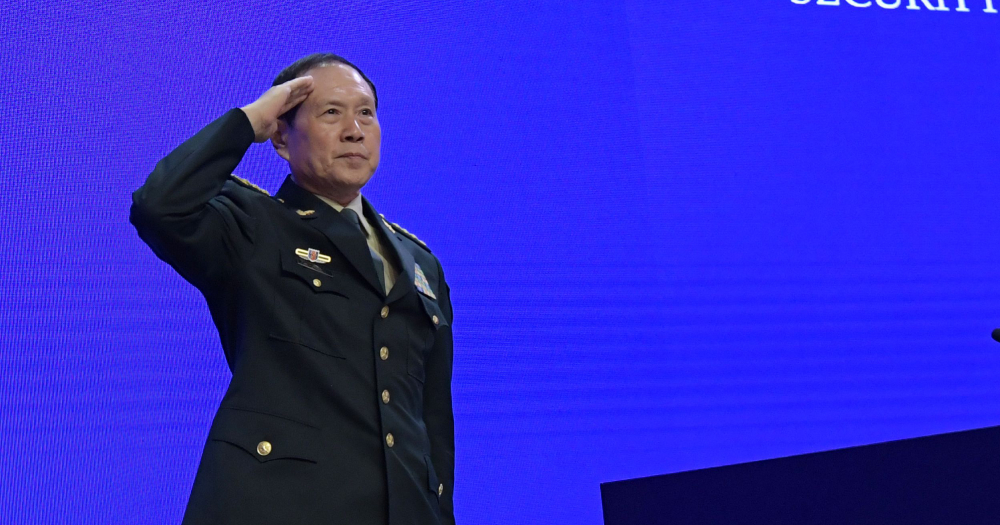China will "fight to the end" if anyone ever tries to separate China and Taiwan, said Chinese Defence Minister Wei Fenghe on Sunday.
Speaking at the Shangri-La Dialogue held in Singapore on the last day of the high-profile security summit, Wei's speech was highly anticipated, his presence marking the first time in eight years a Chinese defence minister has attended the event.
"China must be, and will be, reunified"
Decked in his People's Liberation Army (PLA) general's uniform, Wei slammed the U.S. over its recent words and actions regarding Taiwan.
Repeating the Chinese Communist Party's (CCP) oft-stated stance on the issue, he said "any interference in the Taiwan question is doomed to failure".
"The U.S. is indivisible, and so is China," he said. "China must be, and will be, reunified."
Beijing was angered by recent U.S. navy patrols in the Taiwan Strait, as well as a meeting between Taiwan's national security chief David Lee and U.S. National Security Adviser John Bolton.
That meeting was unusual, as it was the first held between senior U.S. and Taiwanese security officials since the U.S. ended diplomatic ties with the self-ruling island in 1979.
Will take Taiwan under its control using force if necessary
China has not ruled out the use of force to take the self-ruling island under its control.
Chinese President Xi Jinping has reiterated this message earlier in January on the occasion of the 40th anniversary of the issuing of “Message to Compatriots in Taiwan”, urging the Taiwanese people to accept that Taiwan “must be and will be reunited” with the “motherland”.
He also lauded the “one country, two systems” model as an arrangement that Taiwan can follow.
The model is currently applied on Hong Kong and Macau.
However, critics watching Hong Kong closely have dismissed the idea, saying, “Today Hong Kong, tomorrow Taiwan”.
They argue that Hong Kong’s autonomy has eroded under the model as the Beijing government is increasingly asserting its authority on the Special Administrative Region (SAR), despite initially promising not to export its socialist system and policies to Hong Kong.
Taiwan remains as one of Beijing’s “core interests”, which are issues that the party leaders would not compromise on.
Relations between Taipei and Beijing have taken a dip under the Democratic Progressive Party (DPP), after Taiwan President Tsai Ing-Wen refused to affirm the “1992 Consensus”, which is a mutual agreement that there is only “one China”, although both sides interpret it differently.
More on that here:
On the 1989 Tiananmen crackdown
Interestingly, in his speech Wei also addressed the crackdown on unarmed protestors in Beijing's Tiananmen Square on June 4, 1989.
Referring to it as an "incident", he said the central government "took measures to stop the turbulence which is a correct policy".
"The 30 years have proven that China has undergone major changes," he said.
"China has enjoyed stability and development."
You can watch Wei's full speech, as well as his answers to questions that followed, here:
Top image via ROSLAN RAHMAN/AFP/Getty Images
If you like what you read, follow us on Facebook, Instagram, Twitter and Telegram to get the latest updates.
